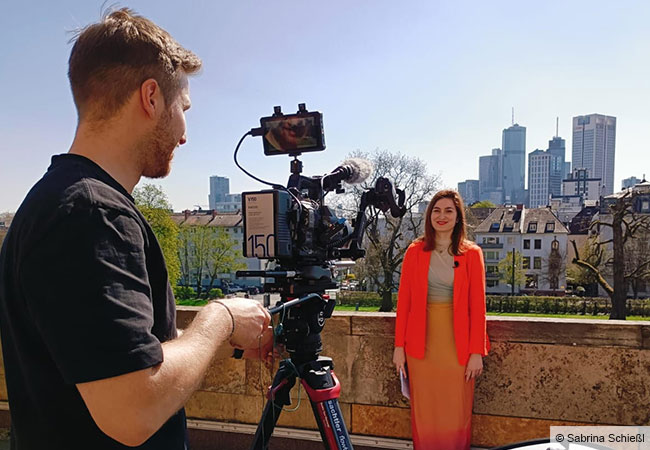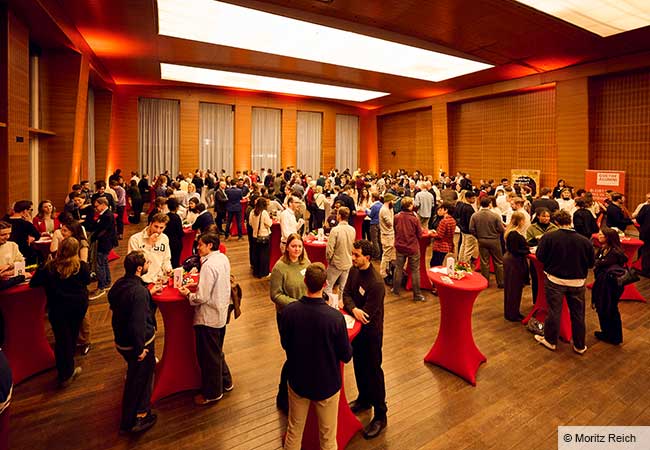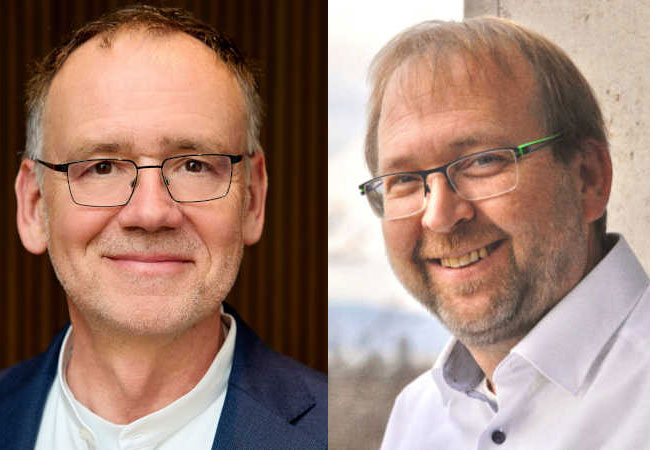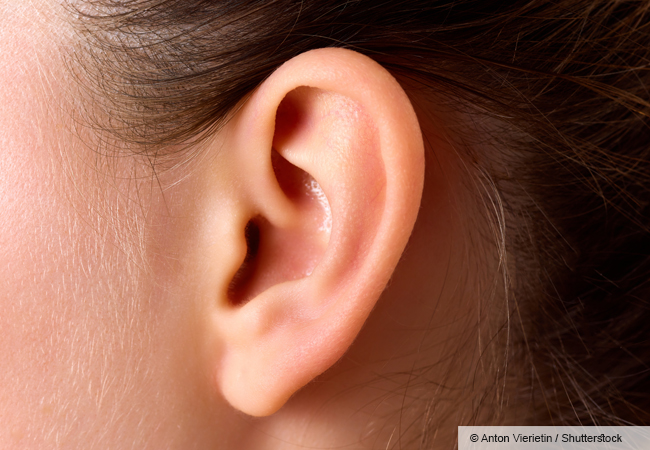Carol Robinson, who works as a professor at Oxford University / UK, has revolutionized mass spectrometry. It is thanks to her work that proteins now can be studied in their native, unaltered form. Using this technique, the renowned chemist analyzes complex biomolecules and their interactions, both with each other and with their environment. As part of the Rolf Sammet visiting fellowship, Robinson will deliver public lectures on her field of research, held on April 29 and 30, as well as May 2 at Goethe University Frankfurt.
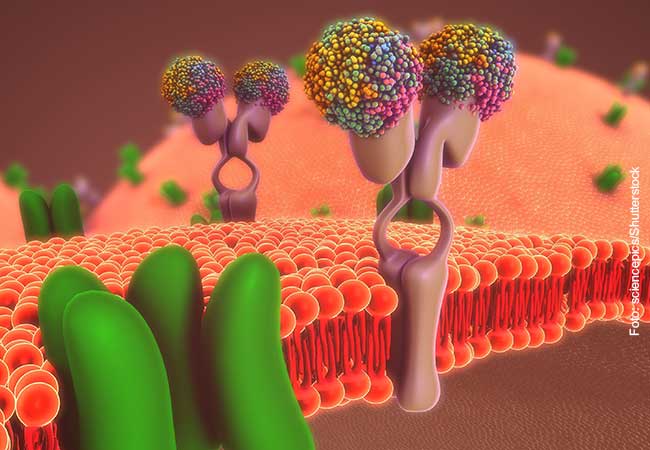
The first modern mass spectrometer dates back to 1918 and was designed by Canadian Arthur Jeffrey Dempster. Within a mass spectrometer’s vacuum, substances are first transferred into the gas phase as charged particles (ions), and then separated according to their components’ mass and charge. The method not only enables the analysis of a substance’s composition, under suitable conditions, it also makes it possible to determine the structure of the molecules inside the substance.
Applying mass spectrometry to the analysis of proteins and protein complexes is particularly challenging. After being extracted from a cell for further analysis, they must first be dissolved without having their properties altered in the process. In the case of membrane proteins anchored in the fatty cell membrane, this requires detergents („soaps“), for example, which have long since posed a major challenge for mass spectrometry applications.
Prof. Carol Robinson, who was ennobled by the British Queen and holds the title of Dame, has succeeded through various developments (native mass spectrometry) at transferring even large protein complexes directly into the gas phase and examining them using mass spectrometry without changing their structure. Thanks to native mass spectrometry and coupled ion mobility measurements, this allows her to derive hypotheses about the complexes’ composition, their interaction partners and their three-dimensional structure.
As part of the Rolf Sammet endowed visiting fellowship, Dame Carol Robinson will share her insights into the structures and functions of the synthesis of receptors or signaling pathways that run across the cell membrane, for example. In 2016, Robinson founded the spin-out OMass Technologies, which now operates very successfully under the name OMass Therapeutics, and which uses native mass spectrometry to develop therapeutic agents for immunological and genetic diseases. Robinson has held the Dr. Lee’s Professor of Chemistry at Oxford University since 2009.
Visiting fellowship award ceremony and first lecture: Monday, April 29, 5 p.m.
On Monday, April 29, 2024 at 5:00 pm, Prof. Dame Carol Robinson will be awarded the Rolf Sammet visiting fellowship in the Biozentrum, lecture hall B1, located on Goethe University’s Riedberg Campus. Afterwards, she will deliver a lecture on „Understanding Protein Interactions with Mass Spectrometry“. In the days that follow, Robinson will give one lecture each for physicians at Frankfurt University Hospital, for scientists on Riedberg Campus, and at Industriepark Höchst. Students have the opportunity to attend her lecture held on Wednesday, April 30 at 11 a.m. on Riedberg Campus.
The Rolf Sammet visiting fellowship, endowed by the Aventis Foundation, is one of Goethe University Frankfurt’s oldest endowed visiting professorships, established in 1985 by Hoechst AG in honor of its long-standing CEO, Prof. Rolf Sammet, who also became an honorary professor at Goethe University in 1975. The university has managed the Rolf Sammet Endowment Fund, which the Aventis Foundation has endowed with €1 million, since January 2015. Each year, an internationally renowned natural scientist is invited to Frankfurt to present a short series of lectures on his or her research field and current focus.
The program of the Rolf Sammet Endowed Guest Professorship 2024 is available here



